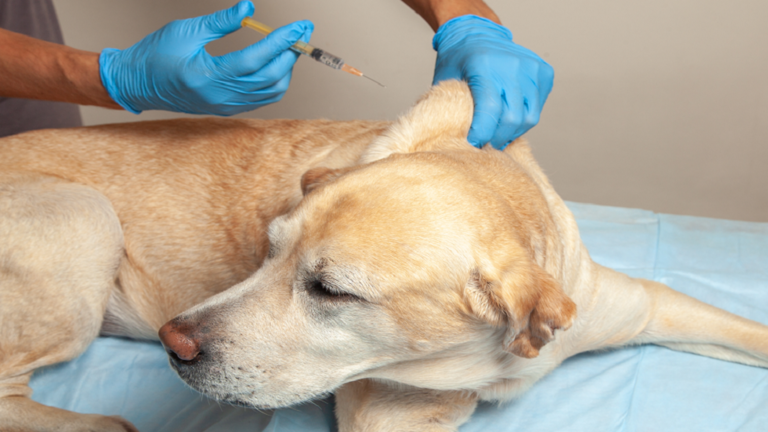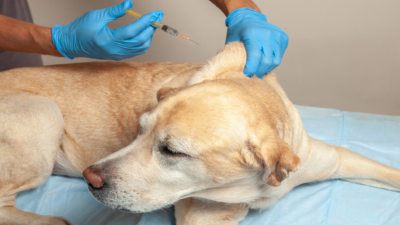A cancer vaccine specifically designed for dogs has shown promising results in clinical trials that began in 2016, raising hopes for the development of cancer treatments in humans. So far, researchers have treated over 300 dogs with the vaccine, increasing the one-year survival rate for dogs suffering from certain types of cancer from approximately 35% to 60%. Tumors in many of the animals have also shrunk.
The treatment is officially known as the Canine EGFR/HER2 peptide immunotherapy and originated from studies on autoimmune diseases, where the immune system damages the body's tissues instead of targeting harmful threats. The vaccine is designed to make the immune system target cancer specifically.
The treatment prompts immune cells to produce antibody defenses that attach to tumors and interfere with their growth patterns. These antibodies target two proteins: EGFR and HER2. Mutations that cause overexpression of these proteins result in uncontrolled cell division in some types of human and canine cancers. Current therapies targeting EGFR and HER2 rely on just one type of antibody. The new vaccine enhances its effects by creating a polyclonal response: a response involving antibodies from multiple immune cells rather than just one, making it harder for cancer to resist the drug.
Veterinary oncologist Jerry Post from Yale University School of Medicine states, "This vaccine is truly revolutionary. I couldn't be more excited to be a veterinary oncologist." Currently, the vaccine remains a treatment option after diagnosis, rather than a preventive measure. Given the similarities between canine and human cancers—ranging from genetic mutations and tumor behavior to treatment responses—researchers believe the vaccine will also aid in understanding cancer in humans.




